Scene 1 (Dahaad): Father of a murder suspect refuses permission for Sub Inspector Anjali Meghwal (Bhati) despite a search warrant because the entry of a Dalit would pollute his ancestral property. Her shrill reply, “ This is not the time of your ancestors, but of the Constitution and if you obstruct me, I will jail you for stopping a police officer’s work and also file SC/ST atrocity (prevention) act for caste discrimination”. The dejected landlord yields. Anjali played by Sonakshi Sinha is the lead character of the gripping Amazon web series Dahaad directed by Reema Katgi.
Scene 2 (Kathal): Dalit Inspector Mahima Basor is sitting late at night at her home trying to solve the mystery of the missing girl, with a backdrop of Ambedkar’s photo on her living room wall. The same day, in the police station she had pulled up her all upper caste constable staff Dwivedi, Mishra and Singh for the delay in the investigation. Here, there is Dr. Ambedkar’s photo in her office cabin (the only photo of Ambedkar you see in her entire police station). Mahima a Dalit Police Inspector played by Sania Malhotra is the lead character of Yashowardhan Mishra’s Netflix release Kathal.

Both these films have finally broken the glass ceiling of assertive Dalit female lead characters in a Bollywood story that is neither entirely about caste discrimination nor biopic on Dalit women leaders (Phoolan Devi or Madam Chief Minister).
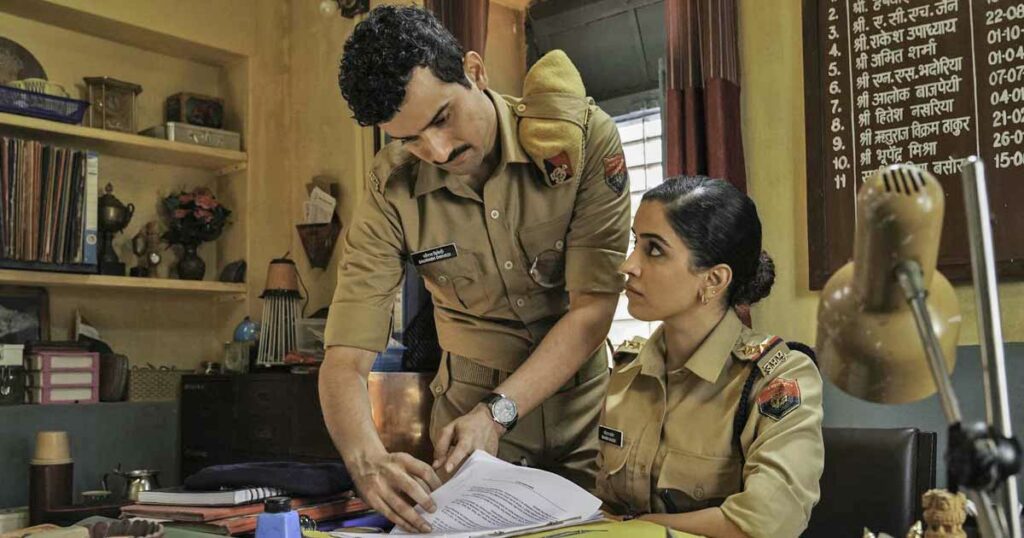
Kathal or Dahaad story could still have been completed without having the Dalit characters. Makers could have used the mundane formula of usual Savarna names as leads. Recent female cop lead stories give ample evidence – Tabu as Inspector General Meera Deshmukh -in Drishyam. (2015, 2022) Rani Mukerji as Senior Inspector Shivani Shivaji Roy in Mardaani 1 and 2 (2016, 2019) Priyanka Chopra as Superintendent of Police Abha Mathur in Jai Gangajal (2016), Mrunal Thakur as Sub Inspector Shivani Mathur in Gumrah (2023), Radhika Apte as SI Megha Sharma in Forensic (2022) and Shefali Chaya as Vartika Chaturvedi in the web series Delhi Crime (2022), to name a few.
Anjali Meghwal and Mahima Basor brings the social reality that has been missing in Bollywood. Yashowardhan Mishra commented that he wanted to bring a little bit of ‘contextual knowledge of the society that we live in‘. Incidentally, his father Ashok Mishra had written Shaym Benegal’s Welcome to Sajjanpur where we saw perhaps for the first time an OBC male lead character named Kushwaha played by Sreyas Talpade.
But the makers – Reema Katgi and Yashwardhan Mishra chose to have Dalit female leads. Anjali Meghwal and Mahima Basor brings the social reality that has been missing in Bollywood. Yashowardhan Mishra commented that he wanted to bring a little bit of ‘contextual knowledge of the society that we live in‘. Incidentally, his father Ashok Mishra had written Shaym Benegal’s Welcome to Sajjanpur where we saw perhaps for the first time an OBC male lead character named Kushwaha played by Sreyas Talpade.
Mahima Basor vs Anjali Meghwal: Compare and contrast
Appears that the makers have spent enough time carefully writing strong characters of Mahima (Sanya Malhotra) and Anjali (Sonakshi Sinha). Both are in a position of power, fair looking (breaking the usual stereotypes in portraying Dalit characters), nor have any savarna saviours coming to their rescue.
Without the strong character of Mahima Basor in Kathal, the comedy movie would have been exposed of the loose screenplay in the first half and struggled to get the desired outcome. What makes the movie gripping and real is the social reality shown by the lead character.
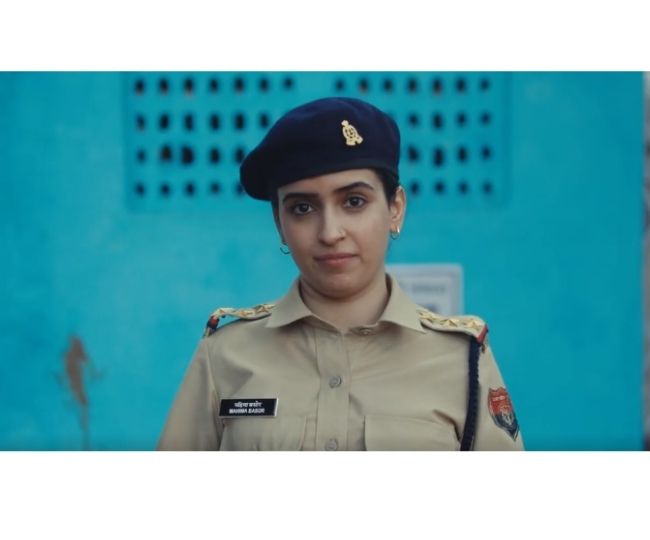
Mahima Basor, the inspector who is assigned with the job of solving the mystery of the stolen jackfruit, is a sincere, hardworking, happy-go-lucky, kind and considerate woman, often reminding her subordinates to not use force on innocent poor people. But she is strong enough to remind a Brahmin in the neighbourhood that calling Dalits as thieves is utter nonsense and she too is a Dalit who punishes thieves.
Mahima Basor, the inspector who is assigned with the job of solving the mystery of the stolen jackfruit, is a sincere, hardworking, happy-go-lucky, kind and considerate woman, often reminding her subordinates to not use force on innocent poor people. But she is strong enough to remind a Brahmin in the neighbourhood that calling Dalits as thieves is utter nonsense and she too is a Dalit who punishes thieves.
Comparing Mahima with the Dahaad cop Anjali Bhati (Meghwal) — a fierce no-nonsense, independent woman who does not take no for an answer. In charge of solving the mystery of slain girls and serial killer, she is not scared of anyone despite being the only Dalit female in the upper caste male-dominated police station, some of which even “purify” the place at her very presence. Just like Mahima, Anjali too does not hide her Dalit identity. She commands the respect of most staff and nobody messes with her. She points out that the administration does not show seriousness when lower-caste girls go missing.
Mahima appears sad that she was promoted to DSP rank towards to end of the movie as she would become senior to her boyfriend, constable Dwivedi, which will further widen the gap between them for marriage. But Anajli would have never felt it like that.
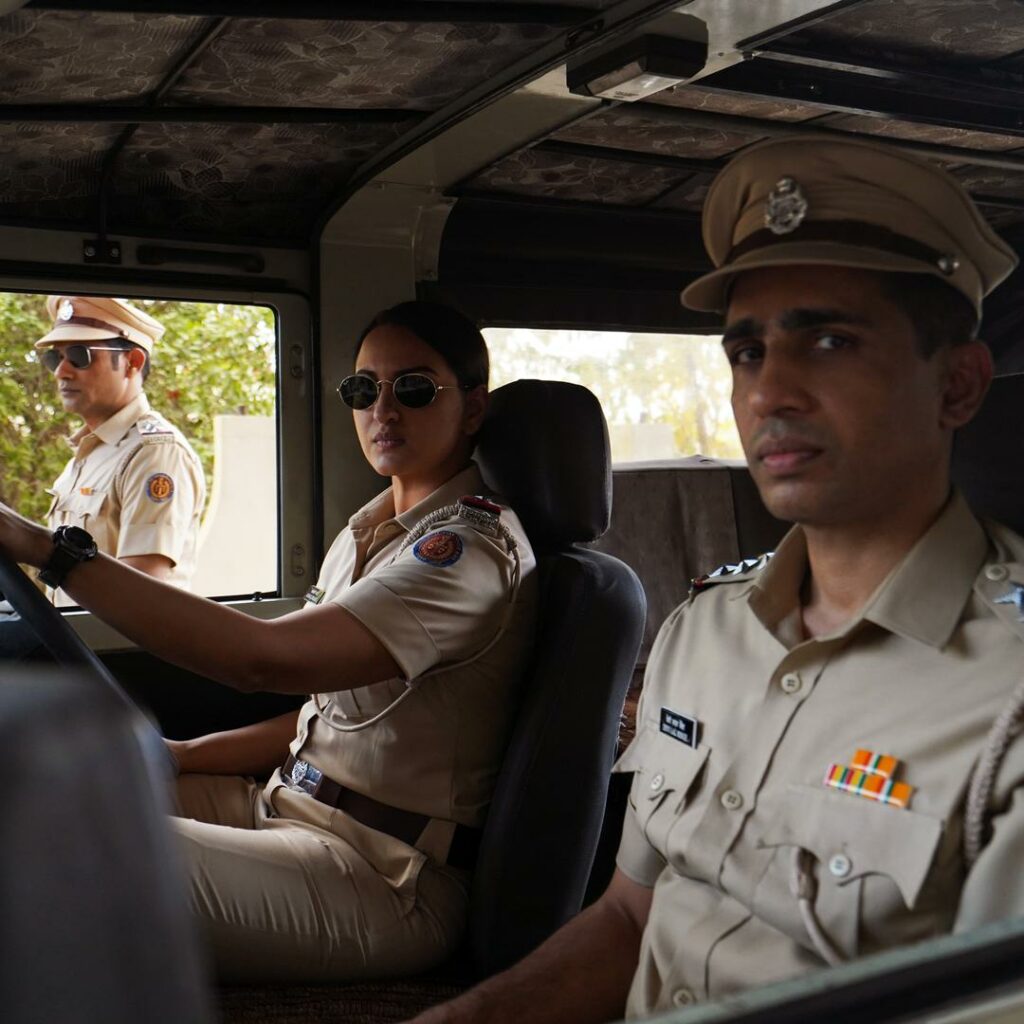
Both do not hide their Dalit identity and are assertive enough to make colleagues know of the social realities. Mahima reminds a senior cop trying to flirt with her that she is good at breaking bones.
Mahima has an Ambedkar Portrait in her house and office walls, Anjali doesn’t but she is well aware of constitutional provisions. In an important scene, she reverts back to her original last name Meghwal (a known Rajasthani Dalit name) years after her father had changed it to Bhati (Upper caste sounding name) to “protect” the family from the caste system after she realises that changing last name does not change her social status in the eyes of the society.
Neither of them is shown to be temple-goers or worshipping gods. Both have boyfriends and are not apologetic about it. Mahima has an Ambedkar Portrait in her house and office walls, Anjali doesn’t but she is well aware of constitutional provisions. In an important scene, she reverts back to her original last name Meghwal (a known Rajasthani Dalit name) years after her father had changed it to Bhati (Upper caste sounding name) to “protect” the family from the caste system after she realises that changing last name does not change her social status in the eyes of the society.
Dalit female characters in bollywood
Compared to other films with Dalit women characters playing second fiddle roles – Rekha in Ganga Ki Saugandh, Nutan in Khandan, Padmini Kolhapure in Sautan – Dahaad and Kathal certainly take the trophy. After Kathal and Dahaad, Bollywood has been appreciated for showing female cop lead stories but we do not see the celebration of the beginning of Dalit women lead movies or OTT series.
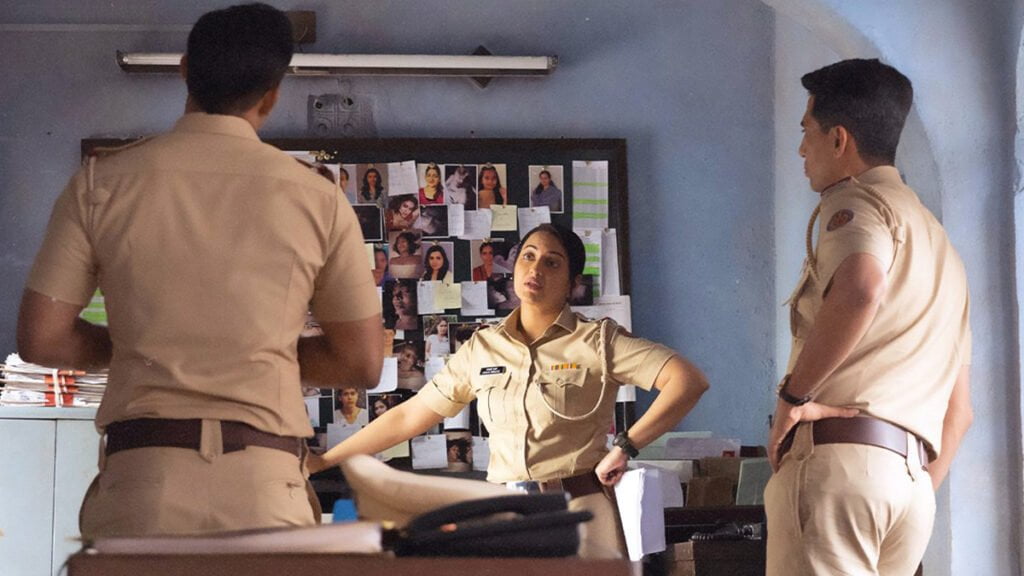
Post these two movies neither the actors or the producers are asked about playing Dalit women leads in the Bollywood which has been missing for a long, nor much has been written off spoken barring a few pieces. We do not see any interview of Sania Malhotra or Sonakshi Sinha asking how she felt playing a Dalit Woman in power for the first time.
Regardless, Dahaad and Kathal, which received immense appreciation from critics mark the beginning of the end of the hesitancy of Bollywood to show clear Dalit leads. Bollywood has been shy in portraying Dalits despite getting so close to writing characters that denotes the social status of lead characters – For eg. Haathiram Chaudhary in Paatal Lok, and Bhumi Pardeshi in SHE.
Regardless, Dahaad and Kathal, which received immense appreciation from critics mark the beginning of the end of the hesitancy of Bollywood to show clear Dalit leads. Bollywood has been shy in portraying Dalits despite getting so close to writing characters that denote the social status of lead characters – For eg. Haathiram Chaudhary in Paatal Lok, and Bhumi Pardeshi in SHE.
Much of the credit for this phenomenon must go to the directors who have been trying to break stereotypes by showcasing assertive Dalit leads, like PA Ranjit, Mari Selvaraj, Nagraj Manjule, Neeraj Ghaywan, Vetri Maran. In fact, Dalit women characters like Bharati Mondal (played by Konkana Sensharma) in Ghaywan’s short film Geeli Pucchi and Rene (played by Dusara Vijayan) in PA Ranjith’s Natchathiram Nagargirathu were so impressive as a lead character that they may have inspired some movie producers.
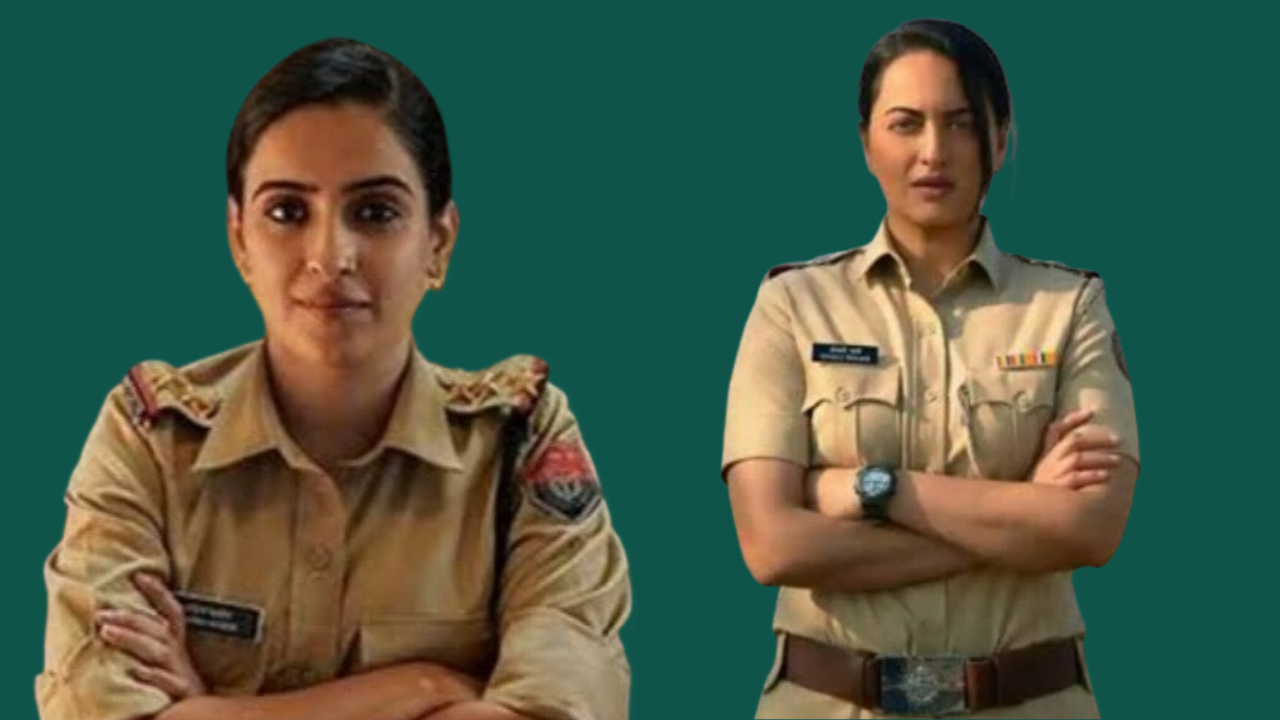


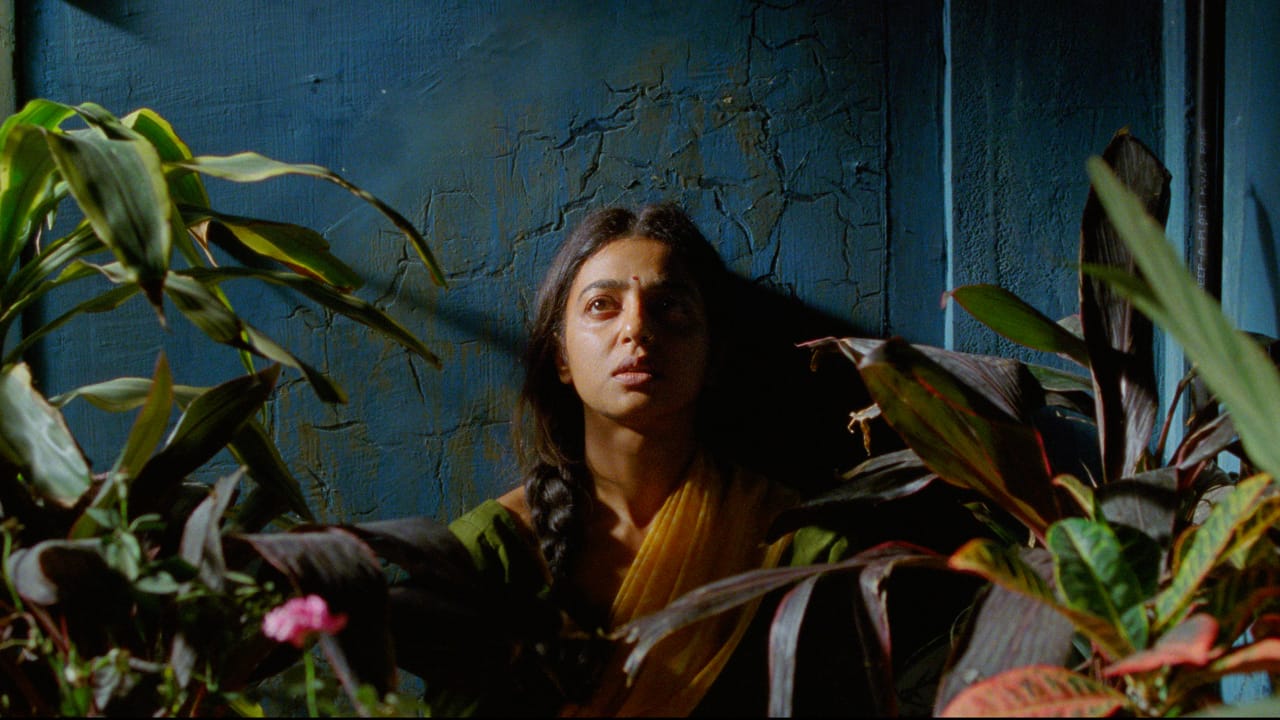

Great piece !
Very comprehensive and well written!
Awesome analysis…!